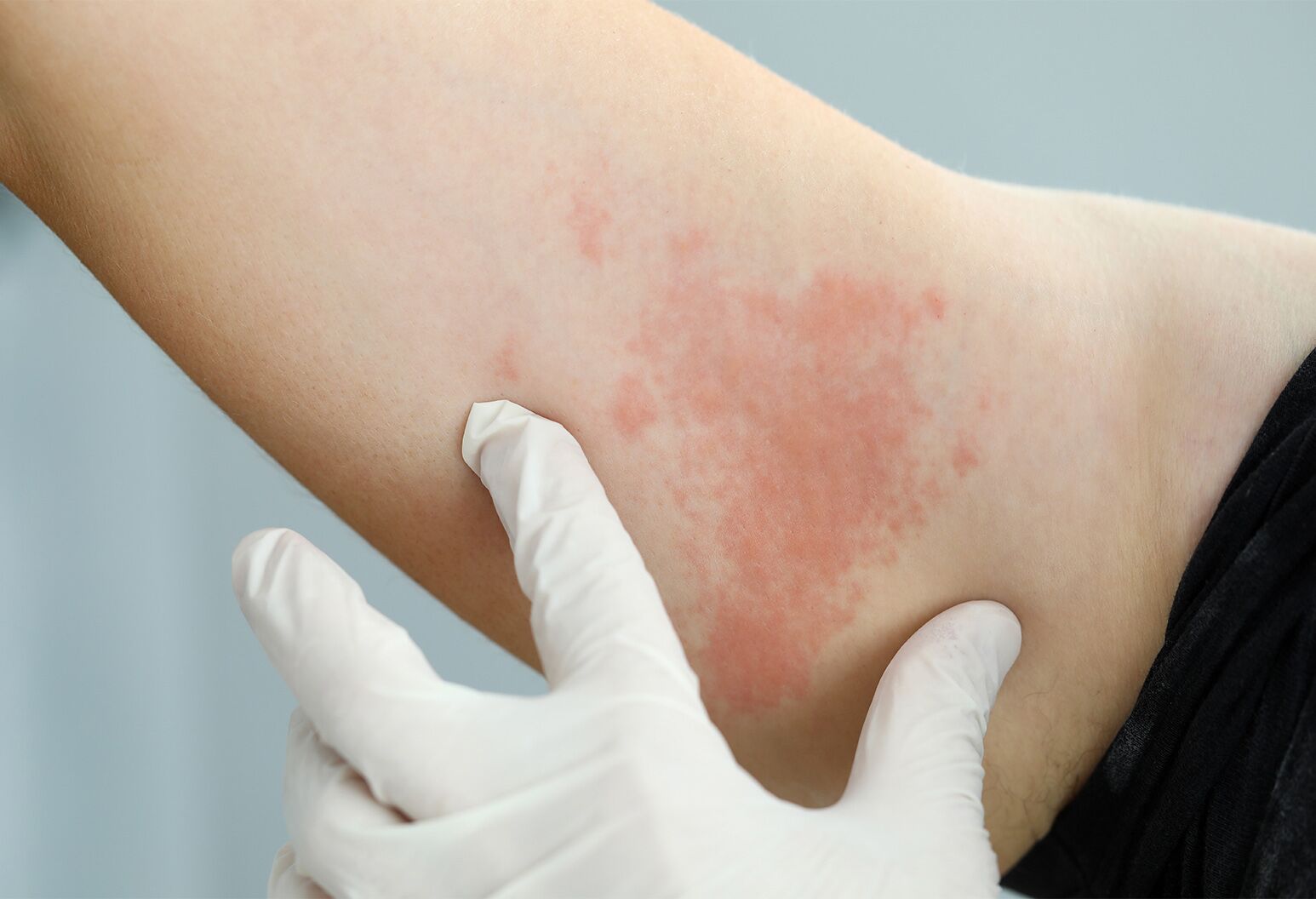skin health
The Risks Of Getting Plastic Surgery Overseas

Know the common causes and treatments for rashes—and when to see a doctor.
5 min read
Rash is the general term for a change in skin color or texture, often punctuated by itchiness, bumpiness, scaliness, or other discomfort. Rashes result from many different triggers. And many are common, mild, and resolve on their own.
But that might feel like little consolation if you’re currently suffering with a painful, itchy, and mysterious rash that just won’t quit. Scouring the internet for information will lead you to some graphic pictures and dubious feedback on message boards… and that probably won’t help.
To get you the answers you need, we turned to Northwell Health dermatologist Nika Finelt, MD. Here are her tips for how to prevent rashes, how to treat them if they do happen, and when you should see a doctor to evaluate your rash.
Rashes occur for “a plethora of reasons,” Finelt explains. Most commonly, they happen as a result of skin irritation and dryness. For example, many people suffer from dry skin in the winter, which may also be accompanied by rash.
In addition—and especially lately—we expose our hands to frequent washing and sanitizing with alcohol-based antibacterial gel. This can cause them to become dry, cracked, and painful, and can compromise the skin barrier, meaning that “certain irritants and allergens may enter through our skin and cause even more irritation.”
Finelt adds that soaps, detergents, cooking ingredients, ingredients used to make slime for kids’ projects—just about anything you can think of that your hands get immersed in can cause an irritant effect. And that means that anyone's hands with enough exposure are susceptible to rash.
“Anyone can get a rash at any point in their lives,” Finelt explains, including people of all ages and skin types.
Avoiding common allergens such as fragranced cleansers and creams is a good first step in preventing rashes, Finelt says. In the winter months when skin tends to be dryer, make sure showers are not too long or too hot. She also suggests using gentle cleansers and bland moistuizers to minimize skin irritation and dryness as a general practice aimed at preventing rashes before they happen.
Some rashes resolve all on their own. Some are mild, common, and easily treated using over-the-counter therapies. “Rashes are treated in different ways depending on the underlying cause,” Finelt says.
But if you have a rash you can’t identify and that doesn’t resolve, seek professional help. Additionally, “If you have a rash that is spreading rapidly or that is causing you discomfort, it is very important that you contact your doctor,” she explains.
Doing so becomes urgent if you feel you are experiencing a severe reaction, such as with anaphylaxis. “If you are worried that you are having a severe allergic reaction accompanied by hives, facial swelling, and the feeling that your throat is starting to close up,” Finelt explains, “then seek medical care right away and get to the nearest emergency room.”
The Well is Northwell Health’s commitment to the future of health care. In this time of information overabundance, much of which is inaccurate, unhelpful, or even difficult to understand, Northwell Health is on a mission to make a difference as an honest, trusted, and caring partner. The site connects with consumers to provide them with personalized content that reduces their stress, makes them laugh, and ultimately feel more confident and capable on their healthcare journey.